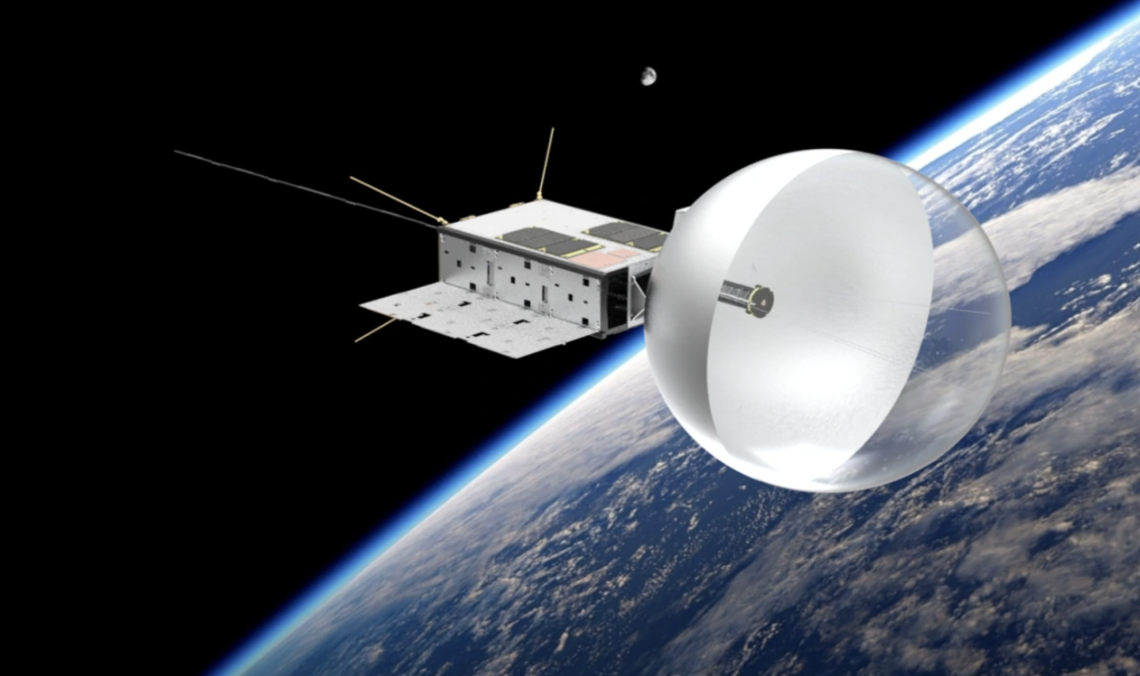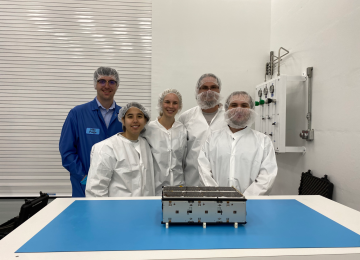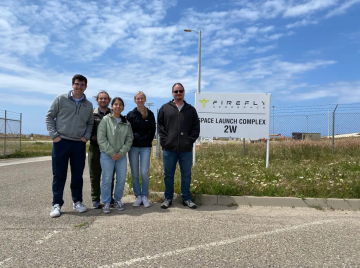CatSat Named Finalist for AIAA’s 2025 “Rookie of the Year” Award

Aman Chandra/FreeFall Aerospace
The University of Arizona’s student‑led CatSat mission has been selected as one of seven finalists for the American Institute of Aeronautics and Astronautics 2025 “Rookie of the Year” award. This prestigious recognition is awarded to early missions or projects that show exceptional promise and innovation within aerospace — and CatSat clearly stands out.
Mission Origins & Innovation
CatSat is a 6U CubeSat, roughly the size of a large cereal box, designed, built and tested entirely by UArizona students across multiple departments—astronomy, aerospace, mechanical, electrical and computer engineering, systems engineering, and computer science. From its clean‐room assembly in Tucson to final integration at Vandenberg Space Force Base, CatSat represents UArizona’s first completely student‑run satellite mission
A key innovation aboard CatSat is its inflatable Mylar antenna, conceived by Christopher Walker, Professor of Astronomy at Steward Observatory and CatSat’s principal investigator. This “beach‑ball” style antenna can dramatically increase communication bandwidth by expanding in space—deploying from a compact volume into a large, reflective sphere that enables high‑data‑rate downlink.
Walker, also co‑founder of FreeFall Aerospace, helped bring the antenna concept from lab prototype to operational hardware. Through his work at Steward Observatory and collaboration with students, he shepherded the CatSat mission from proposal to launch integration.

Pictured: the student team at integration with the CatSat satellite. From left to right: Hilly Paige (a UA DCC), Sarah Li, Shae Henley, Del Spangler, and Walter Rahmer.
Student Leadership & Learning
Far from a faculty‑run project, CatSat is entirely student‑powered. Students have led every stage—from systems engineering and hardware integration to testing, radio communications, and mission operations planning
The mission has offered invaluable hands‑on experience, with participants calling it one of the most formative portions of their university careers. The cleanroom assembly, wiring, testing on a tight six‑cube platform, and navigating setbacks reflect real aerospace engineering in action.
Read more about CatSat:
UArizona's first satellite built by students is ready for launch
CatSat captures and transmitted its first pictures of the Earth

Above: the CatSat student team tours Firefly Aerospace's launch site.
About the “Rookie of the Year” Award
The AIAA “Rookie of the Year” award highlights emerging aerospace missions or initiatives demonstrating outstanding technical merit, vision, and promise. Being selected as one of only seven finalists places CatSat in elite company and underscores its pioneering status in the CubeSat domain.
Voting will open in a few weeks—stay tuned!

